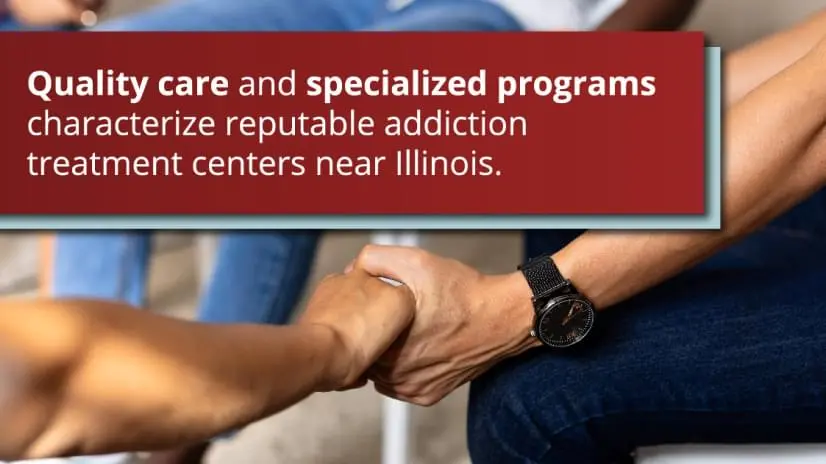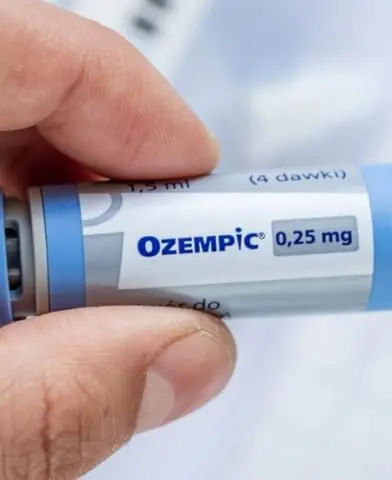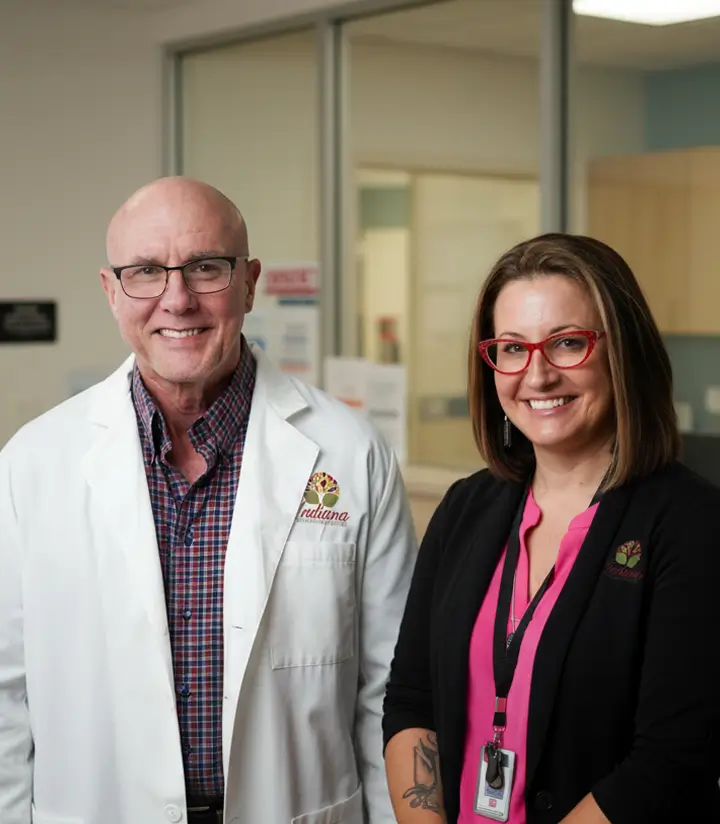
Drug And Alcohol Treatment Near Waukegan, Illinois
Clinically Reviewed by:
Addiction treatment centers provide vital support to individuals, aiding them in overcoming addiction and rebuilding their lives. They focus on more than just stopping drug or alcohol use. They also help with mental health and overall well-being for a complete recovery.

Key Takeaways
Illinois faces a widespread challenge of substance use disorders that can be overcome through local addiction treatment centers. Here’s what you need to know:
- From detox to outpatient, centers provide tailored programs, ensuring effective and supportive care.
- Quality care and specialized programs characterize reputable addiction treatment centers near Illinois.
- Understanding insurance options can significantly impact the affordability and accessibility of treatment.
Indiana Center for Recovery offers quality care and treatment options near Waukegan. Reserve your spot today by calling (844) 650-0064.
Addiction Statistics in Illinois
In Illinois, alcohol addiction and opioid use are prominent. According to the Department of Public Health in Illinois, there was a significant increase in opioid overdoses from 2019 to 2020. In 2020, 2,944 people died from opioid overdoses. This rise is mainly because of synthetic opioids like fentanyl.
Since 2013, deaths from synthetic opioids in Illinois have gone up by 2,736 percent. In 2019, the overall drug overdose death rate in Illinois was 21.9 per 100,000 people. Addiction treatment centers play a vital role in guiding individuals on the right path toward recovery.
Levels of Care for Addiction Treatment
Addiction treatment centers provide a range of treatment programs, ensuring that individuals have access to the right level of care. Whether through detox, residential programs, or outpatient options, the goal is to guide individuals through each phase, offering a comprehensive and supportive approach to recovery.
Detox
Detoxification, or detox, is the first step in recovery. In medical detoxification, a dedicated team of addiction specialists oversees the process to ease withdrawal symptoms and ensure stability.
This program also offers medication-assisted treatment that involves the use of prescription drugs to alleviate withdrawal effects and cravings. The focus is on stabilizing individuals by addressing physical and medical conditions associated with substance use. That sets the stage for the full continuum of care.
Residential Program
In residential treatment, individuals live onsite and receive 24/7 support. A treatment team, including addiction specialists, creates a personalized treatment plan. With a focus on sobriety, residents participate in individual counseling sessions and various therapeutic activities.
The immersive nature of residential programs provides a structured environment. They foster recovery for diverse populations, including young adults and those requiring intensive support.
Outpatient Program
An outpatient program is a flexible and supportive option for people seeking addiction treatment while maintaining their daily routines. It allows participants to receive therapy and counseling during scheduled sessions without residing in a treatment facility. This approach is suitable for those with mild to moderate substance use concerns, providing access to professional guidance while accommodating work or family commitments.
Partial Hospitalization Program (PHP)
A partial hospitalization program (PHP) is a structured form of outpatient care offering more intensive support than traditional outpatient programs. Individuals attend sessions during the day and return home in the evenings.
PHP is beneficial for those who require a higher level of care and monitoring but can still manage to live at home. It provides comprehensive therapeutic services, including counseling and medical support. That contributes to a more structured and supportive treatment experience.
Role of Therapy and Support Groups
Therapy and support groups are vital for individuals seeking help with substance abuse. These services cater to clients’ diverse needs, providing high-quality treatment in both inpatient and outpatient settings. Cognitive Behavioral Therapy (CBT) is a key component of individual therapy, addressing thoughts, feelings, and behaviors to promote positive changes. Family therapy creates a safe space for healing and involving loved ones in recovery.
Dialectical Behavioral Therapy (DBT) and support groups contribute to a comprehensive approach, focusing on the person’s well-being. Support groups like Alcoholics Anonymous (AA) and Narcotics Anonymous (NA) further enhance the supportive network, aligning with the primary goal of fostering sober living and mental health services throughout the state. The main of these local support groups across the state is to guide individuals toward a drug-free life through accessible and tailored therapy options.
Features of Reputable Addiction Centers
Reputable addiction treatment centers offer a range of features aimed at providing effective and supportive care for individuals seeking recovery from substance abuse.
Quality of Care and Treatment
These centers prioritize the quality of care and treatment provided to clients. They employ skilled professionals who are trained to address the unique needs of individuals struggling with addiction. The focus is on offering evidence-based therapies and personalized treatment plans to support long-term recovery.
Accreditation and Licensing
Reputable treatment centers hold proper accreditation and licensing from recognized organizations. That ensures they meet high standards of care and adhere to best practices in addiction treatment. Accreditation assures clients and their families that they will receive treatment from a trusted and reliable facility.
Specialties of Treatment
These centers offer specialized treatment programs tailored to meet clients’ diverse needs. Whether individuals require detoxification, residential treatment, or outpatient services, reputable centers provide comprehensive care to address substance abuse disorders effectively.
Aftercare and Continuous Support
Aftercare and continuous support are essential components of reputed addiction treatment centers. These centers offer ongoing support to clients as they transition back to their everyday lives after completing treatment. This may include access to support groups, counseling services, and relapse prevention programs to help individuals maintain their sobriety in the long term.
Choosing The Right Addiction Treatment Center
Choosing the right addiction treatment center is important for a successful recovery journey. Start by considering your individual needs and the type of support you require. Look for centers that offer a variety of treatment programs, including therapy and support groups.
Check if the center is accredited and licensed, ensuring it meets high standards of care. Explore the location and environment to see if it aligns with your preferences. Understand the costs and inquire about insurance coverage. Read reviews and testimonials to gauge the experiences of others. A center with a dedicated and experienced staff can make a significant difference. Taking these steps helps you make an informed decision for your path to recovery.
Frequently Asked Questions (FAQ)
What types of addiction treatment services are available near Waukegan, Illinois
Our Merrillville, Indiana, location offers outpatient treatment, including individual therapy, group therapy, family therapy, and medication management. Merrillville is located only an hour and a half away from Waukegan. Outpatient treatment allows you to continue your life while receiving addiction treatment.
How long does a typical treatment program last?
The duration of a typical treatment program at addiction centers varies but commonly ranges from 30 to 90 days. Short-term programs may last around a month, providing intensive support and counseling. Longer-term options extend up to three months, offering a more extended focus on recovery.
However, the exact length depends on individual needs, the severity of addiction, and the specific treatment program. The aim is to provide sufficient time for patients to address underlying issues and develop coping skills for sustained recovery.
Indiana Center for Recovery: Support Near Waukegan
Waukegan families along Lake Michigan and the Grand Avenue corridor see how statewide increases in opioid overdoses and alcohol misuse spill into homes, workplaces, and schools, so many look beyond Lake County for support that brings medical stability together with long-term planning.
If withdrawal symptoms are keeping you from getting started, the supervised alcohol & drug detox program delivers 24/7 nursing care, medication support, and a guided transition into therapy so you can clear substances safely before focusing on recovery work.
After stabilization, you can match services to your routine—addiction treatment services combine counseling, peer support, and medication management; the flexible outpatient drug & alcohol program keeps you connected to work or family responsibilities; and an inpatient rehab program pairs daily structure with integrated dual diagnosis care so co-occurring mental health concerns are addressed alongside substance use.
Call (844) 650-0064 to verify insurance, review admission timing, and plan your next steps. Explore ICFR’s Merrillville rehab center, the closest ICFR location to Waukegan, to learn about nearby programs and connect with specialists ready to guide your recovery.






 100% Confidential
100% Confidential
